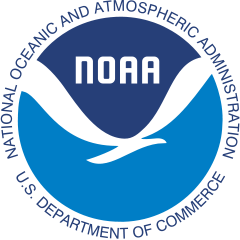Model Diagnostics Task Force Framework Team

Co-I
UCLA

Software developer
NCAR

Project scientist


Co-PI
NCAR

GFDL

Lead software developer
GFDL

Co-PI
Colorado State University

University of Wisconsin

Postdoc

Co-PI
Boston College

Postdoc
Princeton University CIMES

Software developer
SAIC/GFDL

Co-PI
NCAR

Lead PI
UCLA

Technical collaborator
LLNL

Co-PI
Princeton/GFDL

Co-PI
UC Davis

University PI member of leads
Florida State University
Collaborating Institutions
GFDL
NOAA’s Geophysical Fluid Dynamics Laboratory (GFDL) is a founding institutional member of the Model Diagnostics Task Force. Alongside the other task force partners, GFDL scientists provide direction and guidance to the project with Yi Ming, John Krasting and Aparna Radhakrishnan as the co-PIs from GFDL. The laboratory also contributes state of the art models and simulations across a spectrum of different resolutions, Earth system complexity, and weather to climate timescales. Since 2018, GFDL has led the technical development of the framework software, and its transition to an open-source analysis package with Jess Liptak being the lead software developer with past contributions from Tom Jackson. Wenhao Dong leads the development of hydroclimate and atmospheric physics diagnostic development at GFDL.
NCAR
The National Center for Atmospheric Research (NCAR) is a founding institutional member of the Model Diagnostics Task Force (MDTF), with Andrew Gettelman as a co-PI of the project. NCAR helps provide direction for the project and is using MDTF diagnostic tools in it’s development workflows for the Community Earth System Model (CESM). NCAR was technical lead for phase 1 of the project until 2018, with Jack Chen contributing, and the project is now supported by Dani Coleman.
UCLA
The University of California, Los Angeles is a founding institutional member of the Model Diagnostics Task force, and is currently the lead institution, with David Neelin the lead Principal Investigator of the project. He also serves as Chair of the task force, coordinating the multiple institutions developing diagnostics to the software and organizational framework developed by leads team. Along with other Leads team members, the UCLA team provide direction and guidance to the project, especially at the science to framework interface. The UCLA team, which includes Yi-Hung Kuo and Fiaz Ahmed, also contribute to the development of process-oriented diagnostics for the package.
UC Davis
The University of California, Davis, Paul Ullrich PI, joined the Leads team in 2021, continuing the conductivity to Department of Energy activities that was carried out by Lawrence Livermore National Laboratory in the earlier phase of MDTF. UC Davis is contributing feature tracking capabilities and related process oriented diagnostics, and is leading the development of joint standards for model evaluation capabilities.
LLNL
Lawrence Livermore National Laboratory, represented by Ana Ordonez, continues its collaboration with the Model Diagnostics Task Force (MDTF) through the development of joint standards and software for model evaluation. LLNL’s participation brings with it a long history with model evaluation, stretching back to the initiation of the Program for Climate Model Diagnosis and Intercomparison (PCMDI).
Colorado State University
The Colorado State University Department of Atmospheric Science is a founding institutional member of the Model Diagnostics Task Force (MDTF). Prof. Eric Maloney of CSU is a co-PI of the project, and was the lead PI and Chair of the MDTF during its initial phase. He previously played a leadership role in process-oriented diagnostics development as co-chair of the World Meteorological Organization Working Group on Numerical Experimentation (WGNE) MJO Task Force. Other CSU members are also contributing diagnostics during this phase of the MDTF.
Florida State University
Florida State University has participated in the Model Diagnostics Task Force (MDTF) since 2018 as one of the university teams supported by NOAA’s MAPP to develop and implement process-oriented diagnostics. Prof. Allison Wing of FSU served as the university PI member of the MDTF framework leads team in phase 2 of the project (2018-2021) and continues to provide the leads team with perspectives from the standpoint of the university participants.
University of Wisconsin
University of Wisconsin-Madison has participated in the Model Diagnostics Task Force (MDTF) with university teams supported by NOAA’s MAPP in phases 2 and 3 to develop process-oriented lake and ocean model diagnostics. Prof. Elizabeth Maroon currently serves as the university PI member of the MDTF framework leads team for phase 3 (2021-2024), providing university perspectives and facilitating community engagement.
Additional info
For acknowledgments and further info, please check out project documentation and our GitHub repository.
Acknowledgments
We acknowledge contributions from collaborators in the Model Diagnostics Task Force across all phases.


